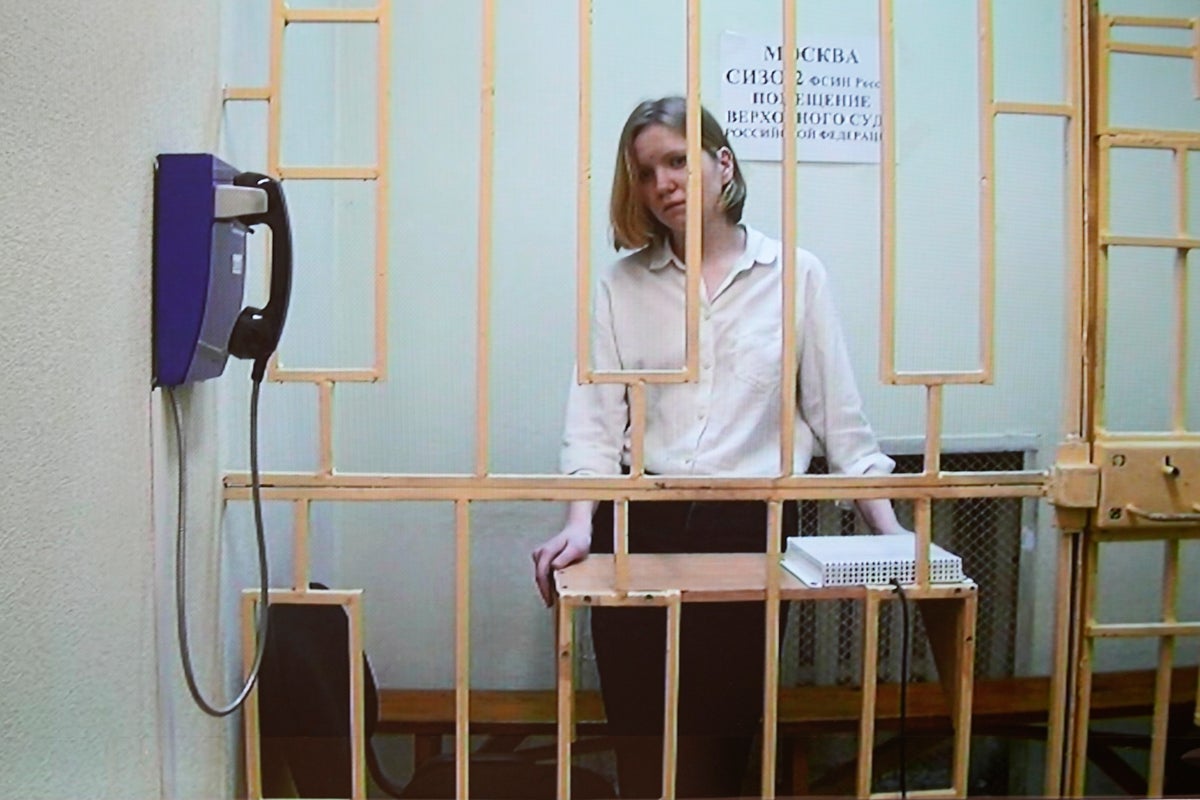
A suspect in a bombing that killed a well-known Russian military blogger had her appeal rejected Monday by a court in the Russian capital.
Moscow City Court turned down Darya Trepova's appeal against her arrest on charges of involvement in the April 2 bombing that killed Vladlen Tatarsky and injured 50 others at a St. Petersburg cafe. It upheld a lower court ruling that ordered Trepova to remain in custody for two months pending investigation.
Tatarsky, 40, an ardent supporter of the Kremlin's military action in Ukraine who filed regular reports on the fighting from the front lines, was killed as he led a discussion at a riverside cafe in the historic heart of Russia’s second-largest city.
Trepova, a 26-year-old St. Petersburg resident who was seen on video presenting Tatarsky with a statuette moments before the blast, was quickly arrested. Russian media reported that Trepova told investigators she was asked to deliver the statuette but didn’t know what was inside it.
Russian authorities described the bombing as an act of terrorism and blamed Ukrainian intelligence agencies for orchestrating it. Ukrainian authorities have not directly responded to the accusation, but an adviser to Ukrainian President Volodymyr Zelenskyy has described the bombing as part of Russia’s internal turmoil.
Earlier this month, Russia’s Federal Security Service, known under its Russian acronym FSB, charged that a Ukrainian citizen whom it identified as Yuriy Denysov had gathered information about the blogger and supplied Trepova with explosives through a courier service.
The FSB claimed that Denysov acted on orders from the Ukrainian security services and left Russia the day after the bombing, which was the latest attack inside Russia on a high-profile pro-war figure. Last year, a nationalist TV commentator was assassinated when a bomb exploded in her SUV outside Moscow.
Tatarsky was the pen name of Maxim Fomin, who had accumulated more than 560,000 followers on his Telegram messaging app channel. He had joined separatists in eastern Ukraine after a Moscow-backed insurgency erupted there in 2014 and fought on the front lines for years before turning to blogging.
Military bloggers have played an increasingly prominent role in Russia amid the fighting in Ukraine, supporting the Kremlin but often exposing flaws in military strategy. The authorities have shut down independent media outlets and muzzled any criticism of the military action.
The FSB claimed that Trepova was a supporter of imprisoned Russian opposition leader Alexei Navalny and claimed that Navalny’s top allies, Ivan Zhdanov and Leonid Volkov, have made repeated calls for subversive activities in Russia.
Zhdanov has charged that authorities could try to use the explosion to extend Navalny’s prison term and to add the anti-corruption foundation he established to Russia’s list of terrorist organizations.







